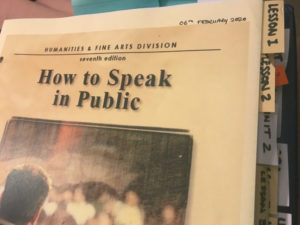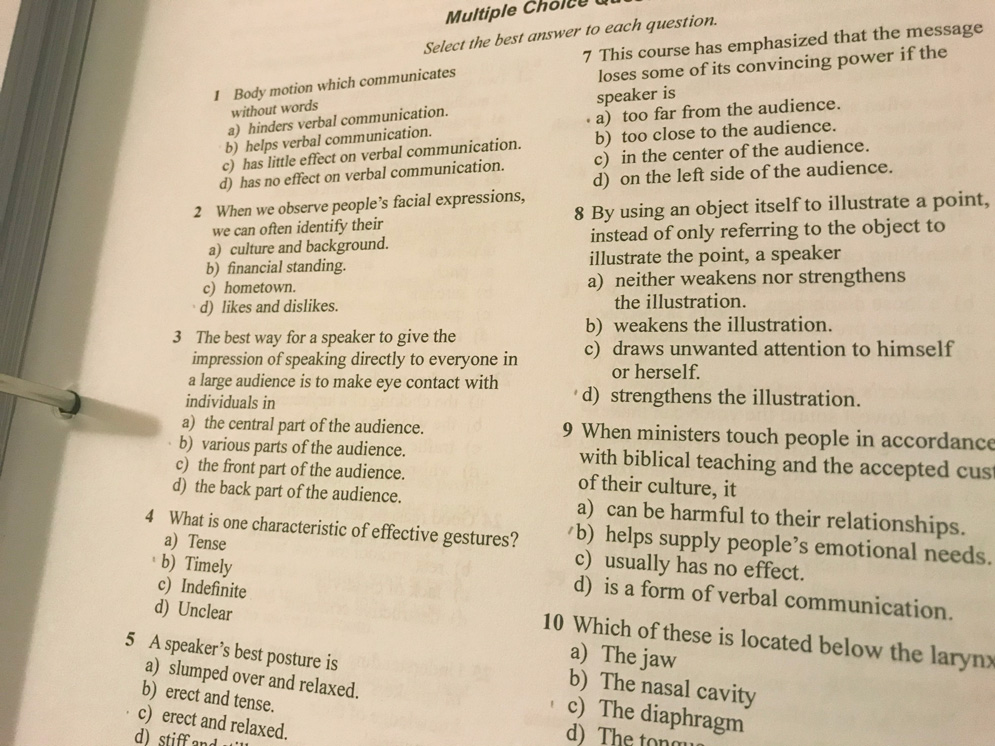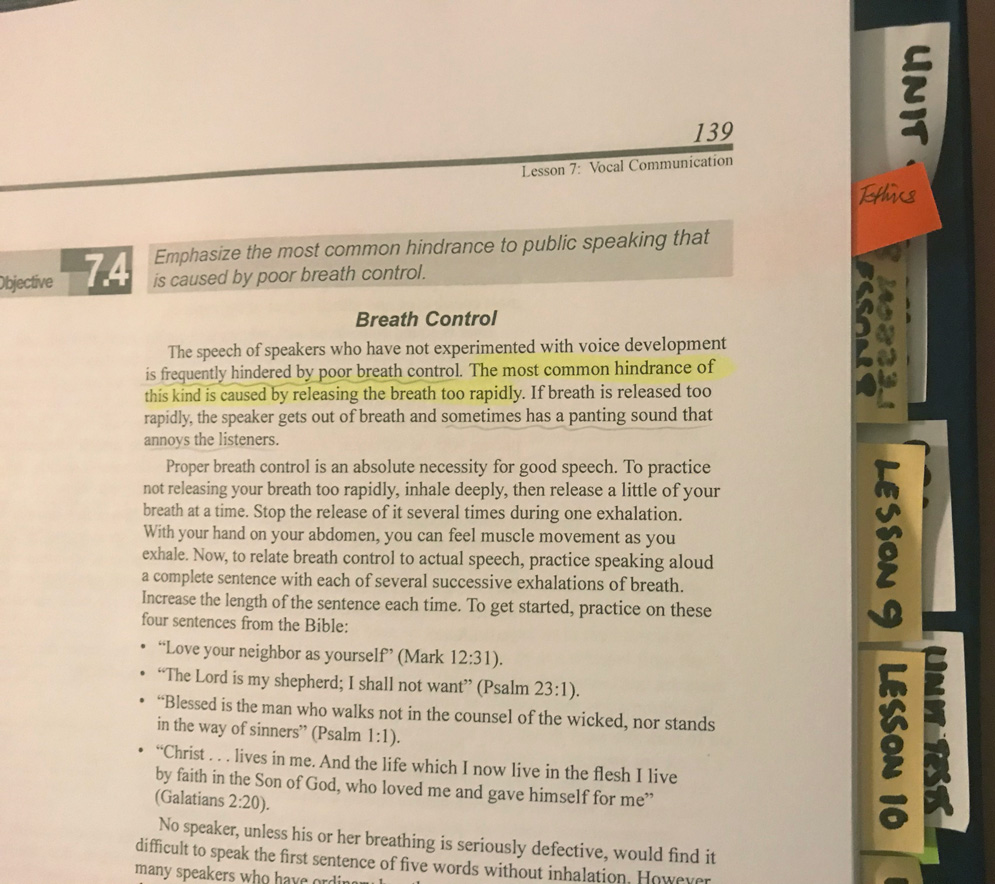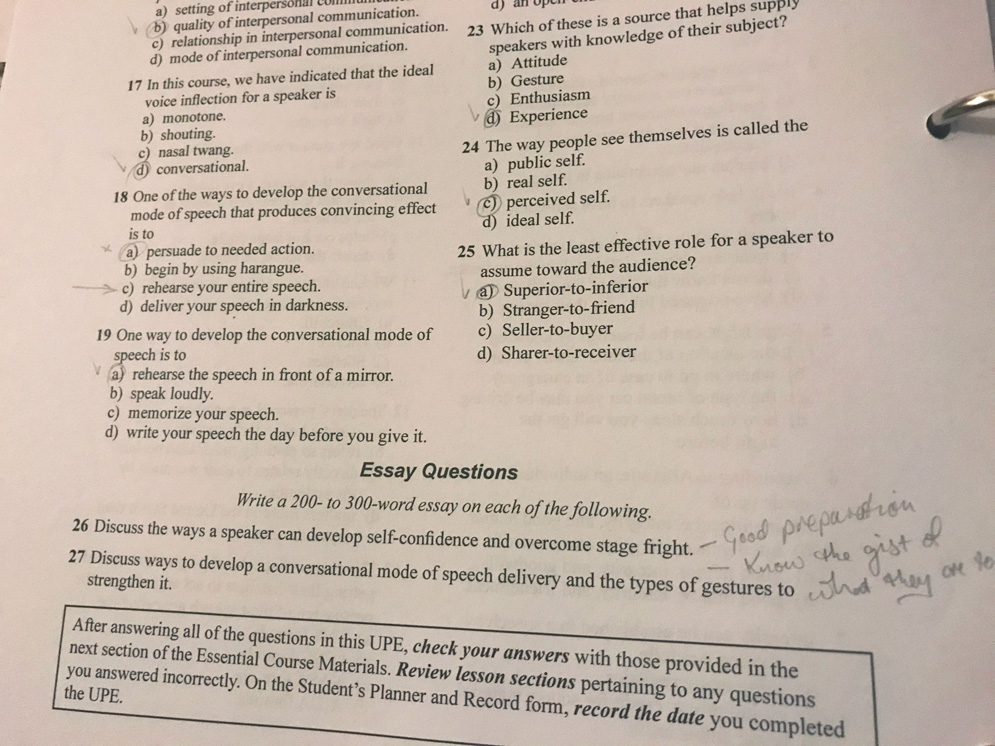
HOW ONE PART-TIME DISTANCE-ED STUDENT COMPLETES A 6 MONTH COURSE IN 21 DAYS!
Amazing as it sounds, one of our part-time distance-education students managed to complete 7 degree level subjects last year, while holding down a busy full-time job, looking after his family, and actively serving in his local church each Sunday. Even more amazingly, several of his subjects were completed in 21 days or under! This piqued our curiosity, so we dug a little deeper to find out how he did it. He wishes to remain anonymous, but was happy to share some of his secrets with us about how managed to do it.
“A SYSTEM”
 “The first thing I do when I get a new Study Guide or IST, is that ‘customise’ it” he said. Being unsure what ‘customising‘ it meant, he sent through a few photos of his latest course Independent Study Text (IST). “Customising”, he explained, “involves putting the start date of the course on the front page. It then involves using those sticky notes you guys sent to me, to put various tabs in the IST—where each lesson commenced, where the Unit Tests are, where the project information is , and where the CRA instructions are.” By putting in these tabs of where each lesson started, he was giving himself a visible small goal to regularly reach. But he also indicated that he had another very important thing that he did before he commenced reading the course material.
“The first thing I do when I get a new Study Guide or IST, is that ‘customise’ it” he said. Being unsure what ‘customising‘ it meant, he sent through a few photos of his latest course Independent Study Text (IST). “Customising”, he explained, “involves putting the start date of the course on the front page. It then involves using those sticky notes you guys sent to me, to put various tabs in the IST—where each lesson commenced, where the Unit Tests are, where the project information is , and where the CRA instructions are.” By putting in these tabs of where each lesson started, he was giving himself a visible small goal to regularly reach. But he also indicated that he had another very important thing that he did before he commenced reading the course material.
BEGIN WITH THE END IN MIND

“When I start a new subject, I want to know what I should be particularly taking note of, so I treat the Unit Tests (and each lesson test) as a ‘pre-test’. This helps me to do two things: firstly, it highlights to me what I don’t know, and secondly, it reinforces to me what I need to learn.” He went on to say that he would use a pencil to put a small dot next to what he thought was the correct answer, then after the completing the Unit or the lesson he would redo these tests to see where his learning gaps had been. He also shared that he would type out each question in the Project for a similar purpose of noting what he should be looking for to answer the project questions. This would also involve using the smaller sticky notes and a highlighter throughout the IST to make for easier reference when writing the Project.

An example of highlighting and also using the smaller and colourful sticky notes with reference to Project or CRA questions
MAKE IT A HABIT
 “I found the textbook for the ‘Orientation To Global University‘ (GUO1002) helpful because in it, Adler and Van Doran, the co-authors of ‘How To Read A Book’, insist that you should always read a book with a pencil. So I make sure that I always have a pencil with me every time I read a book.” He went on to state that he would get up each morning and try to get through one lesson before going to work. “I don’t always succeed”, he said, “but I then pick it up again after I’ve come home from work and had dinner.” Some of the subject he has done have had between 14 to 18 lessons, which he has managed to complete in as many days. With those subject which have had extra reading for the Collateral Reading Assignment (CRA) he begin reading that textbook after writing out the CRA questions so that he was aware of what to particularly take note of. “I have found the CRAs the most tricky part of completing any subject quickly” he confessed, “because GU require that we have at least 3 or 4 reference works in each assignment. But by taking careful note of the IST or ISG (Independent Study Guide), and the CRA textbook, I have found that I can usually use these in my writing projects and then I only need one or two more—which I can often easily find in the Online Resource Centre on the GU website.”
“I found the textbook for the ‘Orientation To Global University‘ (GUO1002) helpful because in it, Adler and Van Doran, the co-authors of ‘How To Read A Book’, insist that you should always read a book with a pencil. So I make sure that I always have a pencil with me every time I read a book.” He went on to state that he would get up each morning and try to get through one lesson before going to work. “I don’t always succeed”, he said, “but I then pick it up again after I’ve come home from work and had dinner.” Some of the subject he has done have had between 14 to 18 lessons, which he has managed to complete in as many days. With those subject which have had extra reading for the Collateral Reading Assignment (CRA) he begin reading that textbook after writing out the CRA questions so that he was aware of what to particularly take note of. “I have found the CRAs the most tricky part of completing any subject quickly” he confessed, “because GU require that we have at least 3 or 4 reference works in each assignment. But by taking careful note of the IST or ISG (Independent Study Guide), and the CRA textbook, I have found that I can usually use these in my writing projects and then I only need one or two more—which I can often easily find in the Online Resource Centre on the GU website.”
PREPARING FOR THE EXAM

Using the sticky notes recently supplied by ICI College Australia to help organise and note important aspects of a subject’s content.
This student told us that he would usually book his exam with the ICI College office before he had finished his course because it then gave him a deadline that he had to work towards. His exam preparation always began with a revision of the Unit Tests then each Lesson Test. Once he had done this he would skim back through his IST paying particular attention to his highlights, underlinings, and margin comments. “In the old days” he told us, “I did the exam with a pencil mark on the paper-exam and then it would be sent off to be marked. But now, with the online exams, you get to see your results straight away. I really like the new system.”
IT’S ABOUT LEARNING
What this student has discovered is that even with a busy lifestyle, by having a system and habit of study, learning can actually take place in a way that it is rewarded and recognised. A large part of the reward is not just the international recognition that Global University affords each of its students, it’s also the sense of achievement and fulfilment that comes from completing something. And, based on his Service Learning Requirements (SLRs) which he submits with each subject, he has also readily found a local church ministry application for what he has learned. Perhaps, what he has shared about how approaches his studies might inspire you to give it a try as well.
Dr. Andrew Corbett
President of ICI College Australia


0 Comments